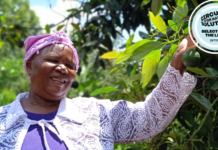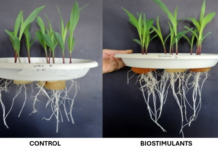By Nita Karume :
The Managing Director/ Chief Executive Officer, Nigeria Incentive-Based Risk Sharing System for Agricultural Lending PLC (NIRSAL), Mr Aliyu Abdulhameed is urging African governments to come up with collaborative efforts towards the upscale of cassava production.
Speaking at the just concluded 4th International Cassava Conference held in Cotonou, Republic of Benin, Mr. Abdulhammed noted that close collaboration by stakeholders in the area of financing, commercialization and adoption of new technologies in cassava production will in turn result in huge returns on agribusiness and ultimately, attainment of food security in Africa.
However, he was quick to note that inasmuch as cassava stands as the main source of nutrition for over 1Bn people across the globe, its value chain is yet to reach its full potential as a tool for the transformation of African economies through industrialization.
Moreover, cassava production continues to remain low in Africa owing to the fact that the primary producers are smallholder farmers who unfortunately lack access to financial services. This is in addition to lack of quality inputs, mechanization as well as knowledge of best agronomic practices. There is also no fair crop markets to enable them to optimize their productivity as well as increase their income.
Mr. Abdulhammed observed that it is unfortunate for Africa to rely largely on imports from other continents to meet industrial requirements for high-quality cassava flour production. This is in spite of having a comparative advantage in cassava production.
According to FAO, Africa produces over 54% of the world’s cassava. This is with Nigeria taking the global lead with a production of about 54.8m MT in 2014. Unfortunately, Nigeria’s 7.7 MT per hectare cassava production is still low when compared to the 23.4 MT and 22.2 MT average yield per hectare produced in Indonesia and Thailand respectively.
As such, activities such as the development of industrial processing of cassava are hampered due to the competition between sustenance production, industry and the peculiarities in its cultivation. The other crucial factor is the crops’ short shelf-life.









